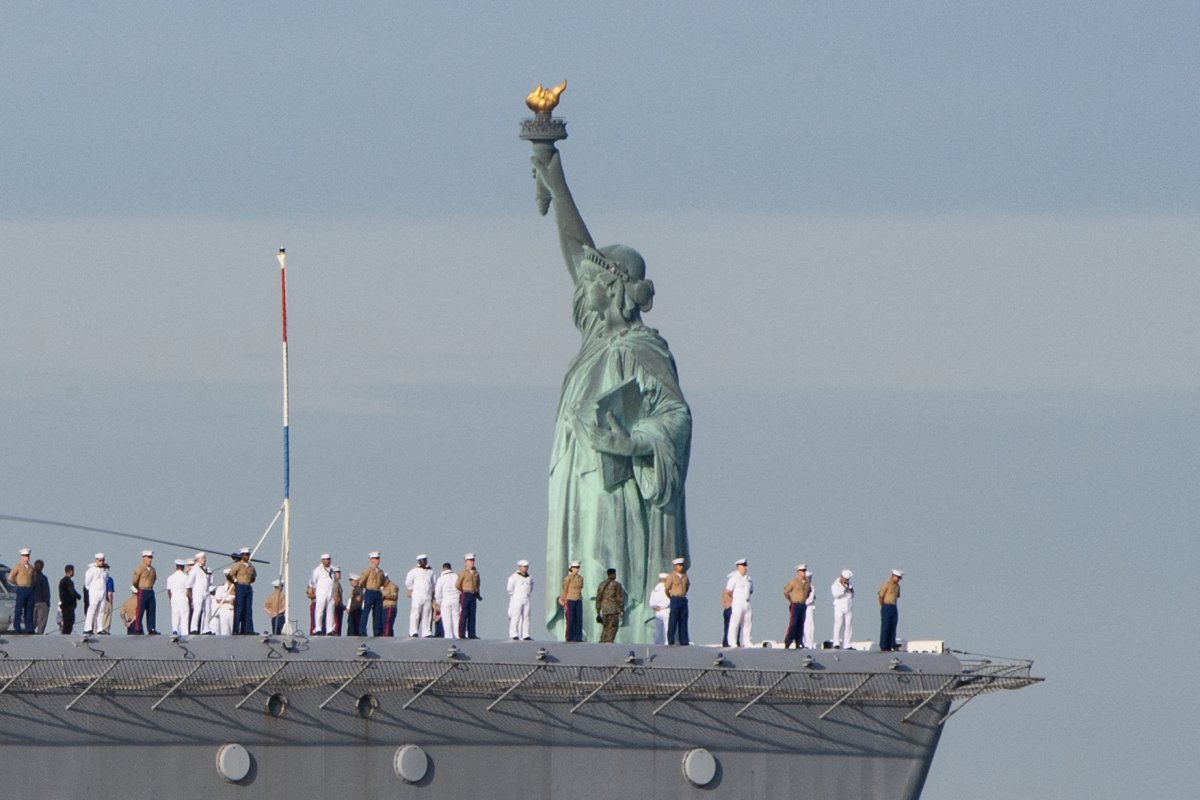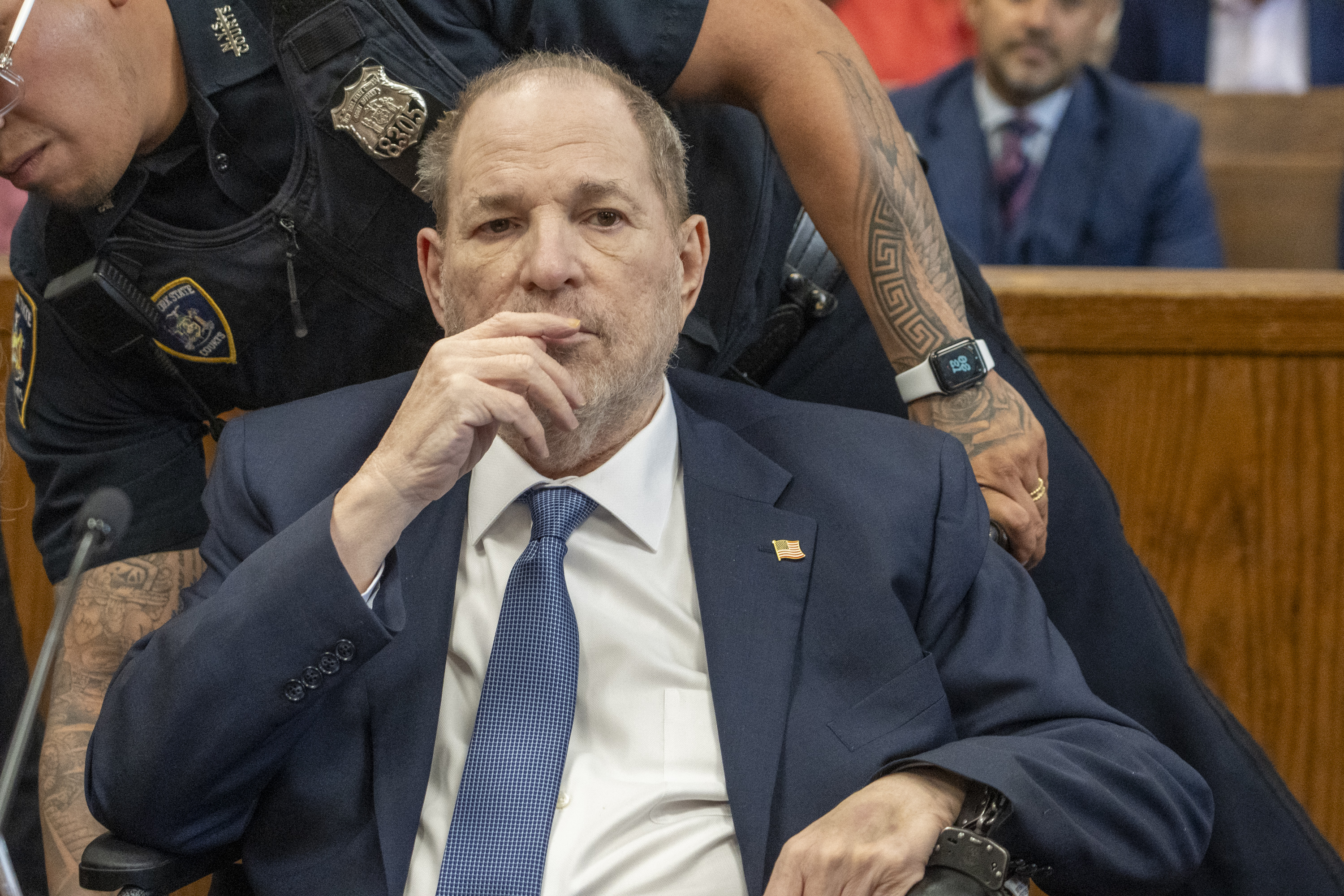The United States of America is an empire of might and of influence. There has never been anything like it for scale and global impact, even if history has yet to render its verdict on America's endurance. U.S. troops are present on six of the seven continents—and perhaps all seven if you count McMurdo Station in Antarctica—and into space. American culture is just culture for much of the world, even if every place gives it a local flavor.
T-shirts and jeans are worn on the hottest days in both Israel and the Palestinian Territories. The Chinese Communist leadership wears suits and ties, a style that began in Great Britain but was spread to a ridiculous extent by an American sensibility. If you want a seat at the table in many, many places around the world, you wear a suit. Even countries looking to rebel against U.S. imperialism wear them, though maybe their shirts don't fold at the collar, and they wear no ties—we're looking at you, Iran.
All this without mentioning Coca-Cola, Microsoft, Apple, and our other corporate behemoths, along with a military machine like none ever known and nuclear weapons enough to end the world.
And the U.S. is not done, yet.

It is a country so strong that our presidential races are covered all over the world as if they were local affairs. America's boss is the leader of the free world, and in many ways, the world itself. Whatever the U.S. president does, the world must react.
Iran's Axis of Resistance is a response to U.S. policy in the Middle East, and to the legacy of the Shah, supported by President Jimmy Carter until the very end, and the revolution of 1979, when the ayatollahs took power and chants of "death to America" became as ubiquitous as saying dorood to a friend you meet on the street.
Of late, the U.S. has been faced with a new loose affiliation of autocracies that includes Iran, China, and Russia. These are not natural allies. Radical Shi'ite Islam, totalitarian communism, and a good old-fashioned strongman. They are allies solely by virtue of enmity to the world's great power: the U.S., and their actions reflect that. Even the invasion of Ukraine can be seen as a direct reaction to U.S. policy.
And as Franklin Roosevelt said, "I ask you to judge me by the enemies I have made."
Their rising power challenges America's, but it does not deny it.
When the U.S. sneezes, nations all over the world catch cold, as they say. When we twitch our tail, the world shifts, sometimes with terrible consequences.
In the last few weeks, I've had in-depth conversations with experts about the near anarchy in Haiti. They agreed that inconsistent U.S. policies—fluctuating between full occupation and complete shunning—have shaped the nation that occupies less than half the island of Hispaniola. Every little decision the U.S. has made regarding the governance or economy of the country has had an exaggerated effect on the lives of people living in a once-rich country that has become one of the poorest nations in the Western Hemisphere.
The United States itself remains the richest and most powerful country in the world, able to project more power than any other nation in history, whether by aircraft carrier or Disney+. That's why it is so strange that all one hears here is how America is falling apart, isn't what it once was, has lost more than a step, needs to be made great again.
The United States and the American Empire are still great, but this crisis of confidence and self-loathing are as dangerous a threat as any we have ever faced. Just by doubting ourselves, we offer aid and comfort to our enemies.
They see the U.S. pulling back and lean in. Some adversaries even seem to believe that they are the reason for our withdrawal. But that comes entirely from within. We have chosen comfort over our own aims. Roosevelt was right again: all we have had to fear is fear itself. And we do.
In the aftermath of Sept. 11, President George W. Bush promised Americans an endless war at a low, low price. War on the cheap (though never in lives) is an admirable goal, but you can only be so surprised when you don't win. The lesson we have taken from the scene at Kabul airport as our last troops fled is that we can't win wars, and that we must therefore crawl into a hole.
We should always avoid war, but that's not why. America, the world's gentle Godzilla, can still win wars—and if our enemies continue to see our crisis of faith for weakness, we may have to.
It's time for the U.S. to take a step back and admire ourselves in the mirror, to acknowledge our strengths in resources—not least our people—to acknowledge our strengths in innovation and wealth. It's time to acknowledge our flaws but refuse to be defined by them.
It's time to once again see ourselves as one people, united against a dangerous world.
Jason Fields is a deputy opinion editor at Newsweek.
The views expressed in this article are the writer's own.
Uncommon Knowledge
Newsweek is committed to challenging conventional wisdom and finding connections in the search for common ground.
Newsweek is committed to challenging conventional wisdom and finding connections in the search for common ground.
About the writer
To read how Newsweek uses AI as a newsroom tool, Click here.








